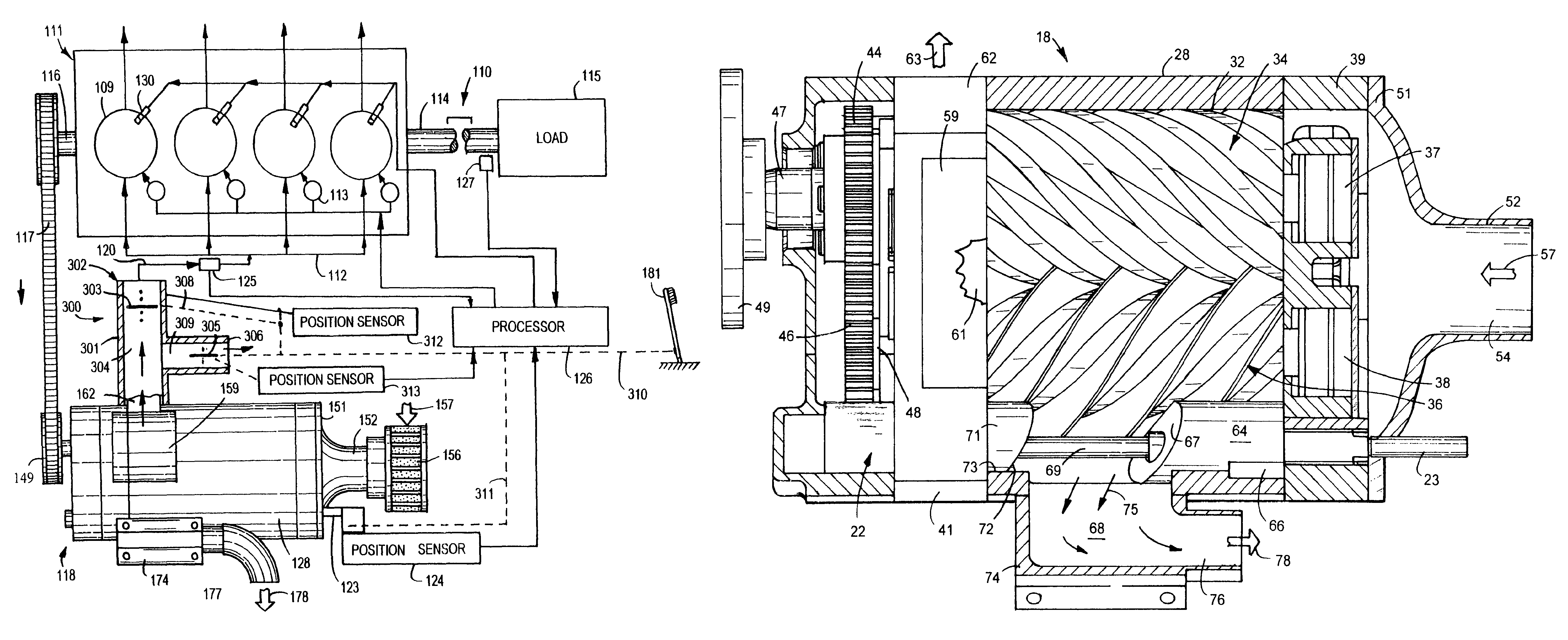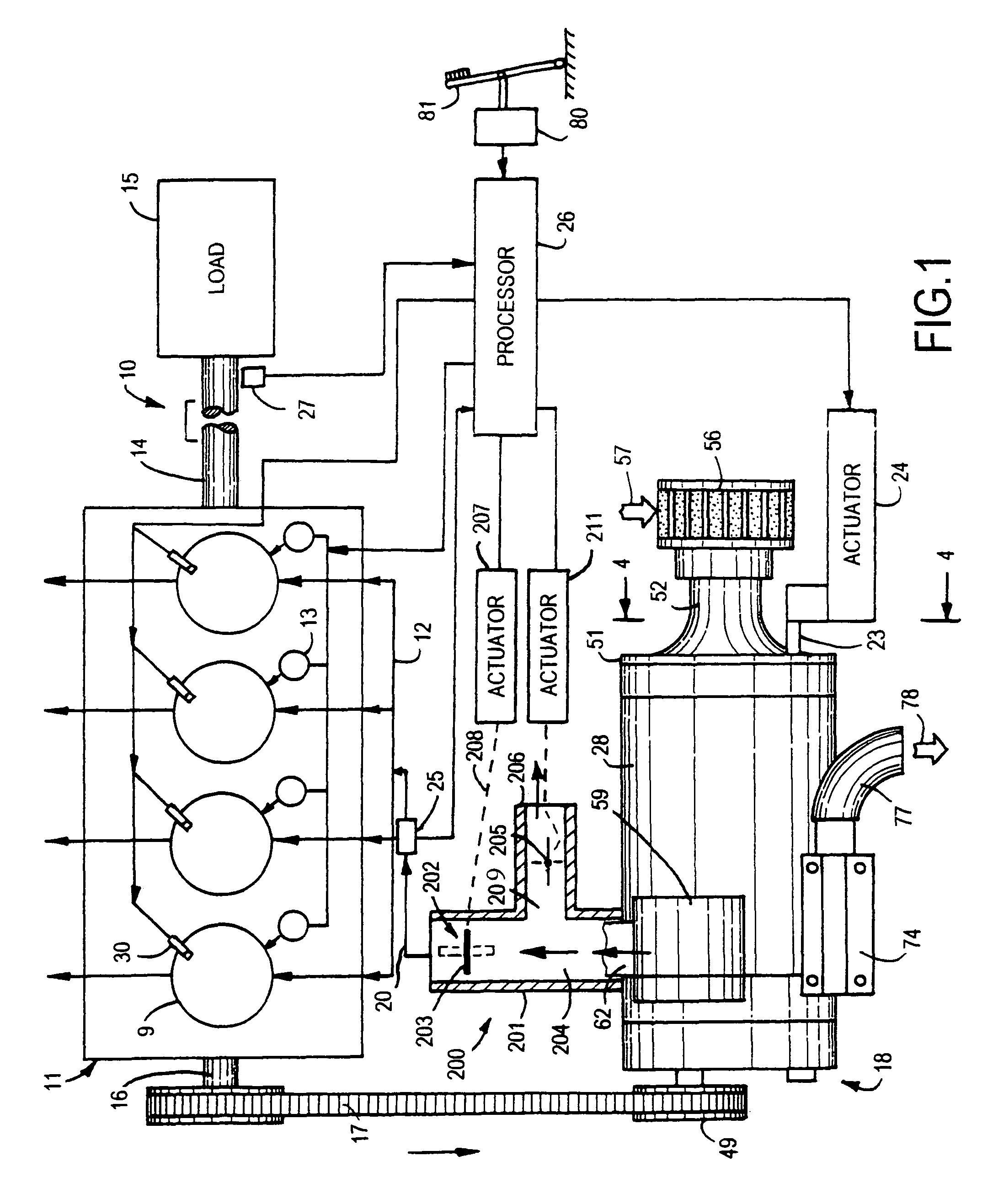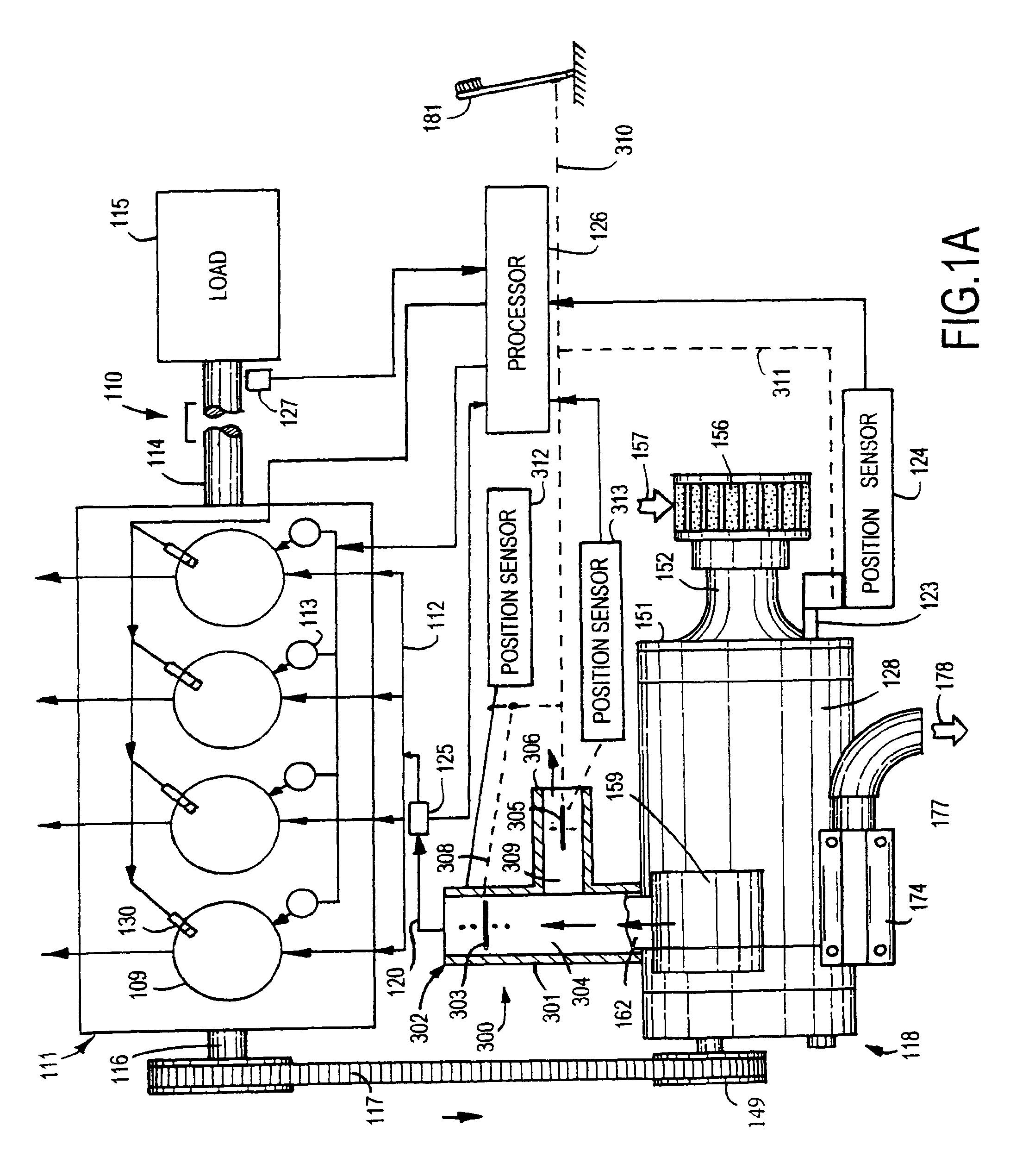Internal combustion engine and supercharger
a supercharger and internal combustion engine technology, applied in the direction of machines/engines, liquid fuel engines, electric control, etc., can solve the problems of no longer controlling the power output of the engine, reducing the air temperature of compressed air delivered to the engine, etc., to achieve efficient supply of varying amounts of air to the engine, improve the power-to-weight ratio of the engine, and drive variable loads more efficiently
- Summary
- Abstract
- Description
- Claims
- Application Information
AI Technical Summary
Benefits of technology
Problems solved by technology
Method used
Image
Examples
second embodiment
[0044]the supercharged internal combustion power unit 110, shown in FIG. 1A, includes conventional internal combustion engine 111 having a drive shaft 114 connected to a load 115, such as an electric generator, water pump, or vehicle drive system. A supercharger 118 driven by engine 111 is controlled with a processor 126 and actuator 124 operable to operate engine 111 during power changes of the load. Engine 111 can operate at varying speeds to accommodate a load, such as an electric generator. The parts of supercharger 118 that correspond to the parts of supercharger 18 have the same reference numbers with the prefix 1. The engine control system of the second modification shown in FIG. 1A employs a progressive sequential mechanical linkage without electronically controlled actuators. In sequence of increasing power levels, the progressive sequential mechanical linkage first opens throttle plate 303 progressively until fully open, then moves valve member 305 from fully open to fully...
fifth embodiment
[0054]supercharger 618 of the invention, shown in FIG. 14, is operatively driven with an internal combustion engine 611 having cylinders, an air intake manifold 612, fuel injectors 613, ignition igniters 630 and a power output drive shaft 614. Shaft 614 is operably connected to a load 615. Load 615 is an apparatus such as an electric generator, a pump, a vehicle drive system or a machine for receiving power from engine 611. A front drive shaft 616 of engine 611 is connected to a power transmission 617 that drives supercharger 618. Engine 611 is a conventional internal combustion engine. Air is delivered from supercharger 618 into a tubular housing 601 coupled to manifold 612 with tube 620. Supercharger 618 is connected to an air control apparatus 600 to direct all or a portion of the air to intake manifold 612. A heat exchanger (not shown) similar to heat exchanger 419 of FIG. 2 may be installed between housing 601 and intake manifold 612 if desired. An air mass flow sensor 625 coup...
sixth embodiment
[0056]supercharger 718 of the invention, shown in FIG. 14A, is operatively driven with an internal combustion engine 711 having cylinders, an air intake manifold 712, fuel injectors 713, ignition igniters 730 and a power output shaft 714. A load 715 is coupled to shaft 714. The parts of supercharger 718 that correspond to supercharger 618 shown in FIG. 14 have the same reference numbers with the prefix 7 in lieu of prefix 6 and are incorporated herein by reference. The throttle valve 702, valve 708, and control shaft 723 are mechanically connected with progressive sequential linkage 709 to foot pedal 781. Linkage 709 acts sequentially to first operate valve 702, then valve 708, and then shaft 723 independently of processor 726. Valve position sensors 705, 710 and 724 on valves 702, 708, and shaft 723 also report to processor 726 to assist the transient response of the engine in controlling the injection of fuel into the engines cylinders and ignition of the air fuel mixture in the c...
PUM
 Login to View More
Login to View More Abstract
Description
Claims
Application Information
 Login to View More
Login to View More - R&D
- Intellectual Property
- Life Sciences
- Materials
- Tech Scout
- Unparalleled Data Quality
- Higher Quality Content
- 60% Fewer Hallucinations
Browse by: Latest US Patents, China's latest patents, Technical Efficacy Thesaurus, Application Domain, Technology Topic, Popular Technical Reports.
© 2025 PatSnap. All rights reserved.Legal|Privacy policy|Modern Slavery Act Transparency Statement|Sitemap|About US| Contact US: help@patsnap.com



